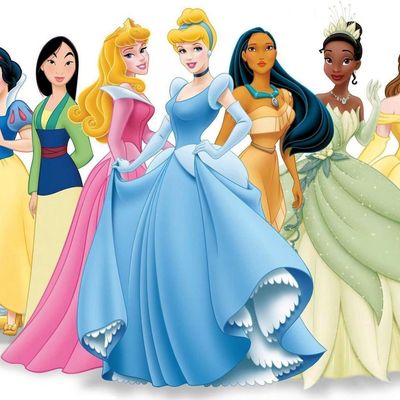
A just-published study suggests that, far from being innocuous beauties, Disney princesses may have long-lasting effects on the children that encounter them. And nearly all children, it suggests, encounter them.
The study, of nearly 200 preschool-aged children, examined children’s attitudes about gender and body image. Of the 198 children, nearly all of them were familiar with the Disney princesses: 96 percent of girls and 87 percent of boys had viewed Disney-princess media of some sort.
It might not be surprising to hear that the Disney princesses aren’t exactly neutral, and their effects are not wholly positive. In fact, the study found that girls who consume Disney-princess-related media (and there is so much of it: movies, books, dolls) have more stereotypical attitudes about gender. For instance, they were much more likely than boys to think that tea sets or cookware are only for girls. Researchers checked in again a year later and determined that these attitudes persisted, suggesting that Cinderella and friends have a long-lasting impact.
Disney princesses also were found to have a negative effect on girls’ body image. “Disney Princesses represent some of the first examples of exposure to the thin ideal,” Brigham Young University researcher Sarah Coyne said. “As women, we get it our whole lives, and it really does start at the Disney Princess level, at age three and four.”
Another compelling finding: Disney-princess media has what most would consider to be a positive effect on boys. Though the gendered stereotypes were found in both boys and girls, the study found that when it comes to body image, Disney princesses have a positive effect for boys. “These beneficial effects suggest that princesses provide a needed counterbalance to the hyper-masculine superhero media” that boys usually encounter.
The study suggests not complete abstinence but moderation. The way parents talk to their children about media can also make a big impact. Coyne says, “When we talk to little girls, we hear less of ‘You’re so smart, you worked so hard, your body can do great things!’ but that is the more important message we should be sending.”

